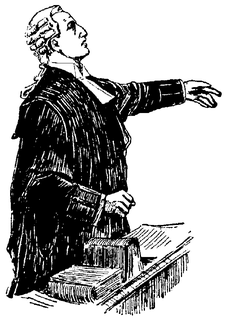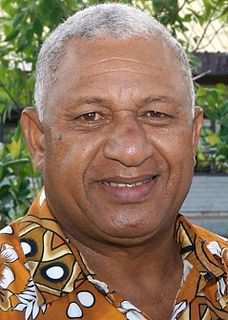
A notary public of the common law is a public officer constituted by law to serve the public in non-contentious matters usually concerned with estates, deeds, powers-of-attorney, and foreign and international business. A notary's main functions are to administer oaths and affirmations, take affidavits and statutory declarations, witness and authenticate the execution of certain classes of documents, take acknowledgments of deeds and other conveyances, protest notes and bills of exchange, provide notice of foreign drafts, prepare marine or ship's protests in cases of damage, provide exemplifications and notarial copies, and perform certain other official acts depending on the jurisdiction. Any such act is known as a notarization. The term notary public only refers to common-law notaries and should not be confused with civil-law notaries.
In most common law jurisdictions, the attorney general or attorney-general is the main legal advisor to the government. The plural is attorneys general (traditional) or attorney generals.

A Queen's Counsel, or King's Counsel during the reign of a king, is an eminent lawyer who is appointed by the monarch to be one of "Her Majesty's Counsel learned in the law." The term is recognised as an honorific. The position exists in some Commonwealth jurisdictions around the world, but other Commonwealth countries have either abolished the position, or re-named it to eliminate monarchical connotations, such as "Senior Counsel" or "Senior Advocate". Queen's Counsel is an office, conferred by the Crown, that is recognised by courts. Members have the privilege of sitting within the bar of court.
A law society is an association of lawyers with a regulatory role that includes the right to supervise the training, qualifications, and conduct of lawyers. Where there is a distinction between barristers and solicitors, solicitors are regulated by the law societies and barristers by a separate bar council.
The call to the bar is a legal term of art in most common law jurisdictions where persons must be qualified to be allowed to argue in court on behalf of another party and are then said to have been "called to the bar" or to have received a "call to the bar". "The bar" is now used as a collective noun for barristers, but literally referred to the wooden barrier in old courtrooms, which separated the often crowded public area at the rear from the space near the judges reserved for those having business with the Court. Barristers would sit or stand immediately behind it, facing the judge, and could use it as a table for their briefs.
The Bachelor of Laws is an undergraduate degree in law originating in England and offered in Japan and most common law jurisdictions—except the United States and Canada—as the degree which allows a person to become a lawyer. It historically served this purpose in the U.S. as well, but was phased out in the mid-1960s in favor of the Juris Doctor degree, and Canada followed suit.

A bar council or bar association, in a common law jurisdiction with a legal profession split between solicitors and barristers or advocates, is a professional body that regulates the profession of barristers. In such jurisdictions, solicitors are generally regulated by the law society.
A bar examination, or bar exam, is the examination which is administered by a jurisdiction's bar association a lawyer needs to pass before being admitted to the bar of that jurisdiction.
Legal executives are a form of trained persons in the legal professional in certain jurisdictions. They often specialise in a particular area of law. The training that a Legal Executive undertakes usually includes both vocational training and academic qualifications.

In the United Kingdom, Australia, Hong Kong, Ireland, and certain other English common law jurisdictions, a trainee solicitor is a prospective lawyer undergoing professional training at a law firm to qualify as a full-fledged solicitor. This period of training is known as a training contract and usually lasts for two years.
Fused profession is a term relating to jurisdictions where the legal profession is not divided between barristers and solicitors. Generally, the term is used in the context of Commonwealth countries, where the single profession of "barrister and solicitor" is provided by statute.
Legal education in the United Kingdom is divided between the common law system of England and Wales and Northern Ireland, and that of Scotland, which uses a hybrid of common law and civil law.

An admission to practice law is acquired when a lawyer receives a license to practice law. In jurisdictions with two types of lawyer, as with barristers and solicitors, barristers must gain admission to the bar whereas for solicitors there are distinct practising certificates.

The Law Society of British Columbia is the regulatory body for lawyers in British Columbia, Canada.
Legal professions in England and Wales are divided between two distinct branches under the legal system, those of solicitors and barristers. Other legal professions in England and Wales include acting as a judge, as the Attorney-General, as a Solicitor-General, or as the Director of Public Prosecutions.
The Nova Scotia Barristers' Society is the statutory body charged with the regulation of the legal profession in the Canadian province of Nova Scotia.









